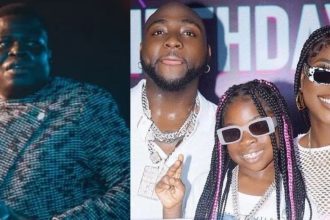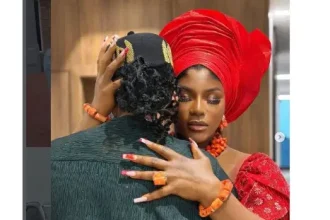An intellectual property/entertainment lawyer, Raphael Efe Irenen, has argued that popular Afrobeats singer, Asake, does not owe Helle Otabor, a policewoman who went viral in 2022 while she was screaming for help while wrestling the driver of a vehicle.
After her words ‘Epp me epp me, he dey carry me go where I no know’ went viral, Grammy nominee, Asake, sampled the voice in his hit single ‘Peace Be Unto You (PBUY)’ which was released June 16, 2022.
Following her hospitalisation due to the leg injury sustained during the accident, comedian I Go Save clamimed that Asake donated N5m for her medical expenses leading to arguments that she demands more than that as some argue that she is entitled to royalties from the song PBUY over her voice sample in the intro.
However, during an interview on Arise TV on Monday, Irenen who is that founder of TEMT Africa absolved Asake of any wrongdoing. Citing the Nigerian Copyright Act, the music lawyer said that the driver in the said video is the author of the video and not the policewoman.
Asked if Asake should pay the policewoman royalties, he said that after “a thorough examination of the provision of the law, the simple answer is a NO.
“First it is germain to know that there are about six classes of works entitled to copyright under the Nigerian Copyright Act. I think section 2, and they are literary, artistic, musical, sound recordings, broadcast, and audiovisual works. The viral video of last year falls under audiovisual work and copyright in an audiovisual work under the Nigeria copyright act goes to the author(suggesting that the civilian who recorded the video and not the woman is entitled to royalties). I think that is section 28 of the Nigerian copyright act.
“Now, giving the fact that the video itself includes the woman’s voice, it is quite reasonable to expect that people advocate that she be compensated but it doesn’t really work that way. The provision I just cited states that in the absence of any agreement, copyright ownership in an audiovisual work goes to the author. The guy that recorded the video. Determining who owns the video will help us determine whether police officer Otabor is entitled to copyright. Based on the law he is the author.”
He addded, “Section 108 of the Nigerian copyright act states that the author, for the sake of an audiovisial work, is the person by whom the arangement for the making of the audiovisual work was made. In the absence of any agreement, who is the person in question, it is the guy that recorded the video. Recall that it was a spontaneous activity. It wasn’t somethig that was planned. The young man just took out his phone and started recording the lady screaming for help ‘help me, help me, help me, he dey carry me dey go where I no know’, so it wasn’t something that was particularly planned. If there was an agreement that states that the lady would be entitled to royalties or that she has a certain level of ownership over the video, that wuld have been different but there is no agreement to that effect. The young man took out his phome and started recording.”
Reacting to the argument that the artist only sampled her vioce from the video an as such she’s entitled to something, he said, “that argument is not tenable. The reason is this, if you remove the lady’s voice, you make it a stand alone item, distinct from the video, under what copyrightable work will it fall under. At best we can say it a sound recording or a musical work but that is not even correct because if you check the provision of section 108 of the Nigerian Copyright act, the definition of a sound recording expresslye excludes the sound from an audiovisual work.”











